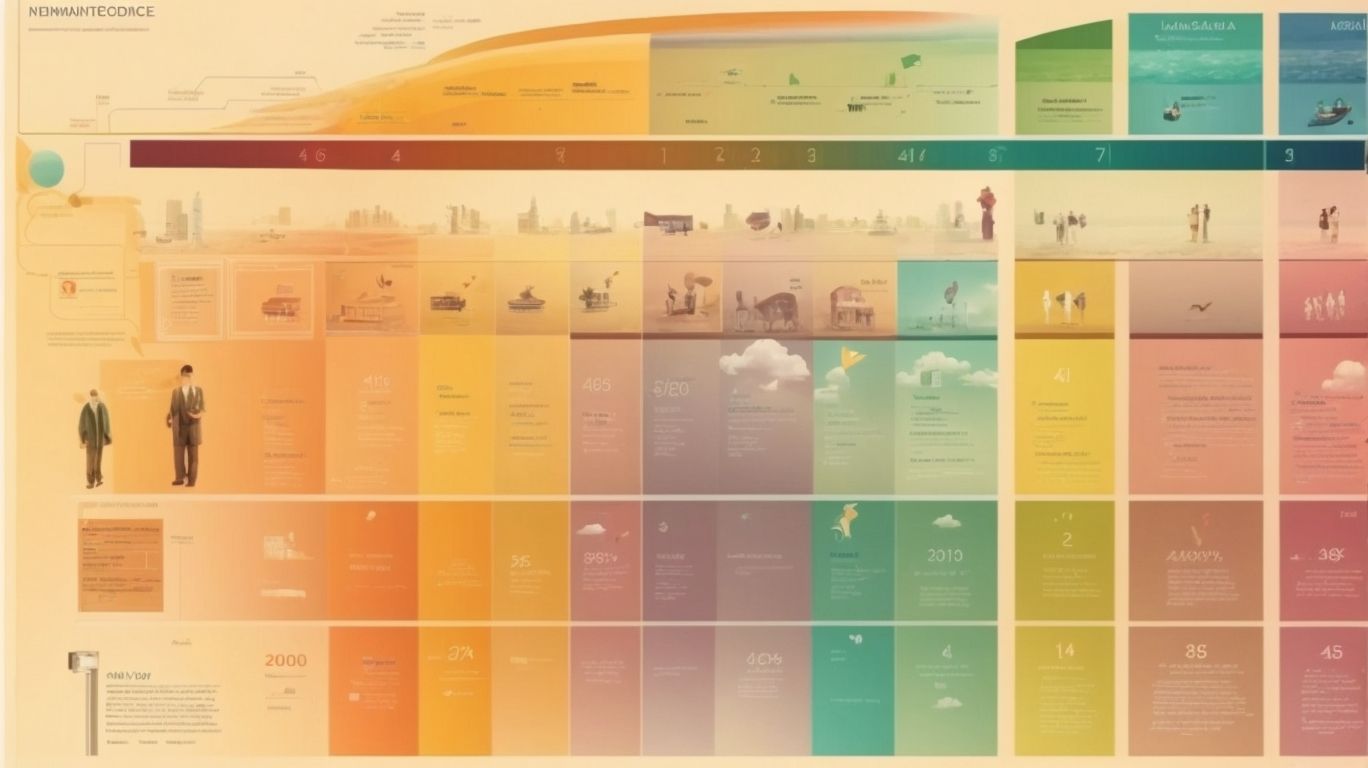Lifespan development is a fascinating and essential area of study in psychology that explores the different stages of human growth and the factors that influence our development throughout our lives.
In this article, we will delve into the various stages of lifespan development, from infancy to old age, and examine why it is crucial in understanding human behavior and experiences.
We will also explore how lifespan development impacts our education, relationships, career, health, and well-being, as well as the factors that shape our development, including genetics, environment, culture, and personal choices.
Join us as we unravel the complexities of lifespan development and its profound impact on our lives.
Contents
- 1 Key Takeaways:
- 2 What Is Lifespan Development?
- 3 Why Is Lifespan Development Important In Psychology?
- 4 How Does Lifespan Development Impact Our Lives?
- 5 What Are The Factors That Influence Lifespan Development?
- 6 Frequently Asked Questions
- 6.1 What is lifespan development in psychology?
- 6.2 Why is understanding lifespan development important in psychology?
- 6.3 How does lifespan development contribute to our overall understanding of human behavior?
- 6.4 What are some key theories in lifespan development psychology?
- 6.5 How does lifespan development impact our relationships and interactions with others?
- 6.6 Why is it important to consider cultural and societal influences in lifespan development?
Key Takeaways:
- Lifespan development encompasses all stages of human growth and is shaped by a variety of factors, including genetics, environment, and personal experiences.
- Understanding lifespan development is crucial in psychology as it provides insight into human development, developmental milestones, and the nature vs. nurture debate.
- Lifespan development has a significant impact on our lives, influencing areas such as education, relationships, career, and health, and it is shaped by a combination of genetic, environmental, cultural, and personal factors.
What Is Lifespan Development?
Lifespan development refers to the continuous and systematic changes that occur in individuals from conception to death, encompassing biological, cognitive, and psychosocial dimensions.
This complex and interconnected process involves a series of age-related milestones and transitions, influencing an individual’s physical, cognitive, emotional, and social development.
From infancy and early childhood, where crucial developments in motor skills, language acquisition, and emotional regulation take place, to adolescence marked by identity formation and the exploration of independence, and through adulthood and later life characterized by career advancement, family relationships, and retirement planning, each stage of lifespan development presents unique challenges and opportunities.
What Are The Different Stages Of Lifespan Development?
Lifespan development encompasses various stages, including infancy, childhood, adolescence, adulthood, and old age, each characterized by distinct physical, cognitive, and psychosocial changes.
During infancy, rapid physical growth, developing motor skills, and the emergence of early language and communication abilities are prominent.
In childhood, cognitive development accelerates, marked by advancements in memory, problem-solving, and social understanding.
Adolescence witnesses significant physical changes, emotional turbulence, and the formation of self-identity.
Adulthood, split into early, middle, and late stages, is marked by career establishment, family formation, and generativity.
In old age, individuals face declines in physical capabilities, cognitive abilities, and seek to find meaning and acceptance of their life journey.
Why Is Lifespan Development Important In Psychology?
Lifespan development holds significant importance in psychology as it provides a holistic framework for understanding the complex interplay between biological, cognitive, and psychosocial factors that shape individuals’ behavior and experiences over time.
This multidisciplinary approach integrates knowledge from various fields, such as biology, sociology, and neuroscience, to comprehend the dynamic changes that occur throughout a person’s life.
The impact of lifespan development on individual behavior and experience is profound, as it not only explores the influences of genetics and environmental factors on development but also delineates the crucial role of early experiences in shaping later outcomes.
Understanding these intricacies can have far-reaching implications for addressing behavioral issues, fostering healthy development, and promoting well-being across the lifespan.
Understanding Human Development
Understanding human development within the context of lifespan entails examining the interplay between genetic predispositions and environmental influences, drawing on theoretical frameworks such as nature vs. nurture and conducting empirical research to uncover developmental patterns and trajectories.
The theories of nature versus nurture provide a lens through which to understand the complex interaction of genetic factors and environmental contexts in shaping developmental outcomes.
Research organizations such as the National Institute of Child Health and Human Development (NICHD) and influential theorists like Urie Bronfenbrenner have significantly contributed to this field, shedding light on the reciprocal influences of biological inheritance and environmental exposures.
Moreover, developmental psychology and child development research have proven instrumental in elucidating how genetic and environmental forces operate in concert to mold an individual’s traits, behaviors, and cognitive capacities over their lifespan.
This comprehensive analysis enables better comprehension of not only typical developmental pathways but also atypical trajectories, fostering a holistic approach to understanding human development.
Identifying Developmental Milestones
Identifying developmental milestones within the lifespan involves recognizing key physical, cognitive, and psychosocial markers that signify the progression and attainment of specific skills, behaviors, and abilities at different stages of development.
Understanding these milestones is crucial as they provide insights into the typical growth trajectory of individuals, aiding in the identification of potential developmental delays or disorders.
Researchers such as Jean Piaget and Lev Vygotsky have extensively studied these milestones, highlighting their significance in shaping an individual’s learning and cognitive development.
and supporting these milestones not only fosters healthy development but also lays a solid foundation for future learning and success.
Examining Nature vs. Nurture Debate
The nature vs. nurture debate in lifespan development explores the relative contributions of genetic inheritance and environmental factors in shaping individuals’ traits, behaviors, and experiences, reflecting the ongoing quest to understand the complex interplay between hereditary and environmental influences.
Throughout history, researchers and theorists have grappled with the intriguing question of how genetics and environment interact to mold human development.
From the pioneering work of John B. Watson and B.F. Skinner in behaviorism to the groundbreaking studies of John Bowlby in attachment theory, developmental psychology has been enriched by diverse perspectives that address the role of nature and nurture.
The nature vs. nurture debate has enduring implications for developmental psychology, informing studies at Harvard’s Center on the Developing Child and Stanford’s Center for Comparative Studies in Race and Ethnicity, among others.
Exploring Identity Formation
Exploring the process of identity formation across the lifespan delves into the complex interplay of social, cultural, and psychological factors that shape individuals’ self-concept, values, and roles, drawing on seminal theories such as Erik Erikson’s psychosocial stages and Piaget’s cognitive development framework.
These influential theories highlight the significance of social interactions, internalizing cultural norms, and cognitive maturation in the formation of identity.
Erikson’s stages, for instance, underscore the crucial role of social interactions in shaping an individual’s sense of trust, autonomy, identity, and intimacy.
Piaget’s framework, on the other hand, emphasizes the cognitive processes involved in understanding and interpreting one’s experiences within the sociocultural context.
Contemporary scholars like James Marcia have expanded upon these theories, acknowledging the dynamic nature of identity formation and the exploration of commitment and crisis in shaping individual identity.
Marcia’s identity status model identifies four statuses – diffusion, foreclosure, moratorium, and achievement – reflecting the varying levels of exploration and commitment individuals experience.
Studying Aging And Gerontology
Studying aging and gerontology within the scope of lifespan development involves exploring the physiological, cognitive, and psychosocial changes that accompany the aging process, highlighting the adaptive strategies and learning styles employed by older adults to navigate life transitions and maintain well-being.
Researchers in the field of aging and gerontology, such as Dr. Laura Carstensen from the Stanford Center on Longevity, have contributed valuable insights into the adaptive nature of aging.
Understanding the role of social support networks and resilience in promoting successful aging has been a focal point of gerontological studies.
The work of organizations like the American Geriatrics Society has aided in shaping public policies and healthcare interventions to better support the aging population.
How Does Lifespan Development Impact Our Lives?
The impact of lifespan development on our lives is profound, influencing our educational experiences, social relationships, career trajectories, and overall health and well-being, as it encompasses the dynamic interplay of cognitive, psychosocial, and biological growth throughout the lifespan.
Throughout the various stages of life, from infancy to old age, lifespan development shapes our learning experiences, from foundational cognitive skills in early childhood to the acquisition of specialized knowledge and expertise in adulthood.
The impact of lifespan development extends beyond individual experiences, as it significantly influences the nature of our interpersonal connections, the development and maintenance of familial and romantic bonds, and the navigation of social networks and communities.
Our chosen career paths and occupational achievements are intricately intertwined with the continuous processes of lifespan development, from the initial aspirations and vocational choices to the ongoing adaptation and growth within professional settings.
The lifespan development significantly affects our physical and mental well-being, influencing the susceptibility to various health conditions, the ability to cope with stressors and challenges, and the maintenance of overall quality of life.
Education And Learning
The influence of lifespan development on education and learning underscores the dynamic interplay of cognitive, social, and emotional growth in shaping individuals’ learning styles, academic potentials, and adaptive strategies across various academic disciplines.
Understanding the impact of lifespan development on education requires a multidimensional lens that integrates psychological theories such as piaget’s cognitive development theory and vygotsky’s sociocultural theory.
These theories elucidate how individuals’ cognitive capacities and social interactions evolve over time, directly influencing their learning processes and academic achievements.
Lifespan development contributes to refining individuals’ capabilities to comprehend complex concepts, think critically, and engage in analytical reasoning, therefore shaping the effectiveness of educational interventions and pedagogical approaches.
Relationships And Social Interactions
Lifespan development significantly shapes individuals’ relationships and social interactions, influencing their psychosocial adaptability, cultural learning, and experiential growth across diverse interpersonal contexts, reflecting the multifaceted impact of developmental experiences on social dynamics.
Through various stages of life, from infancy and childhood to adolescence, adulthood, and old age, individuals undergo a series of developmental changes that impact their interactions with others.
The influential studies of Erik Erikson and Lev Vygotsky have delved into the profound influence of social relationships and cultural context on personal development.
This has led to a greater understanding of how individuals acquire social skills, develop empathy, and navigate complex social structures.
The interplay between individual development and social environment is pivotal in shaping one’s ability to form and maintain meaningful relationships, affecting their overall well-being and societal integration.
Career And Work
Lifespan development exerts a substantial impact on individuals’ career trajectories and work experiences, shaping their adaptive strategies, learning styles, and professional growth as they navigate diverse occupational settings and life transitions, reflecting the dynamic interplay of developmental influences on career development.
This influence is particularly evident in the work of influential researchers such as Erik Erikson and Daniel Levinson, whose seminal theories underscore the significance of various life stages and their implications for career decision-making and work behavior.
The complex interconnection between cognitive, emotional, and social development across adulthood profoundly shapes individuals’ vocational choices, work satisfaction, and resilience in the face of career-related challenges.
As adults progress through different developmental phases, their experiences, priorities, and perspectives evolve, thereby necessitating adaptive responses and ongoing learning mechanisms to align with their changing professional demands, contributing to a continuous process of skills acquisition and adaptation in a dynamic work environment.
Health And Well-being
Lifespan development profoundly impacts individuals’ health and well-being, influencing their biological, cognitive, and psychosocial growth trajectories, experiences, and adaptive strategies, underscoring the intricate interplay of developmental dynamics on overall health and quality of life.
Biologically, lifespan development shapes the foundation of one’s health through processes such as growth, maturation, and age-related changes.
From cognitive perspectives, the development of mental processes and abilities throughout life significantly influences how individuals perceive and respond to health-related information, make decisions, and adopt health behaviors.
Psychosocial developmental experiences, including relationships, societal roles, and emotional regulation, play a pivotal role in shaping individuals’ overall well-being and health outcomes.
The World Health Organization and the National Institutes of Health emphasize the critical connection between lifespan development and health, highlighting pivotal research in the field.
What Are The Factors That Influence Lifespan Development?
Various factors influence lifespan development, including genetic predispositions, biological determinants, environmental contexts, social dynamics, cultural influences, as well as personal experiences and choices, reflecting the multifaceted nature of developmental pathways and trajectories.
Genetic predispositions play a fundamental role in shaping individuals’ susceptibility to certain health conditions and behavioral traits, thereby significantly impacting their lifespan and overall well-being. Biological determinants, such as prenatal influences and genetic mutations, can exert profound effects on developmental outcomes.
Environmental contexts, ranging from socio-economic conditions to access to healthcare and educational opportunities, also play pivotal roles in shaping an individual’s developmental trajectory.
Social dynamics and cultural influences create diverse experiences and perspectives that contribute to the unique pathways of lifespan development.
Genetics And Biological Factors
Genetics and biological factors significantly shape lifespan development, influencing individuals’ hereditary predispositions, adaptive potentials, and learning styles, while environmental interactions further modulate these influential dynamics across developmental trajectories.
The intricate interplay between genetic predispositions and environmental influences is an essential aspect of understanding lifespan development.
Genetic variations can directly impact an individual’s susceptibility to certain diseases and conditions, as well as their overall physical and cognitive capabilities.
These genetic traits are often expressed in the form of phenotypes, which are observable characteristics shaped by both genetic and environmental factors.
Genetic predispositions can influence an individual’s psychological and emotional resilience, which in turn plays a crucial role in their developmental journey.
Environment And Social Factors
Environmental and social factors play a pivotal role in shaping lifespan development, encompassing the cultural, educational, and psychological dimensions that impinge on individuals’ perspectives, experiences, and adaptive strategies across diverse environmental contexts.
These influences are particularly profound during critical developmental periods, such as childhood, adolescence, and early adulthood, where the interplay between environmental and social factors significantly contributes to the formation of one’s identity, values, and belief systems.
The context-specific nature of these factors, such as urban or rural environments, varied socioeconomic backgrounds, and culturally rich communities, underscores the diversity of experiences that individuals encounter, thereby shaping their cognitive, emotional, and social development in distinctive ways.
Culture And Society
Culture and society profoundly impact lifespan development, shaping individuals’ growth trajectories, learning experiences, and psychosocial adaptations within the broader context of diverse cultural and societal frameworks, underscoring the dynamic interplay of cultural influences on developmental pathways.
The influence of culture and society on lifespan development is pervasive, affecting cognitive, emotional, and social growth. Cultural norms, values, and traditions significantly mold an individual’s developmental journey.
Societal dynamics, including educational systems, family structures, and community values, play a vital role in shaping the experiences and opportunities for growth.
The intergenerational transmission of cultural knowledge and practices influences the development of identity and social connections, contributing to a deeper understanding of the complex interactions between culture, society, and human development.
Personal Experiences And Choices
Personal experiences and choices significantly influence lifespan development, reflecting individuals’ psychosocial growth, learning trajectories, and adaptive strategies, as they navigate life events and make pivotal choices that shape their developmental pathways.
These experiences and choices provide critical opportunities for individuals to develop coping mechanisms, problem-solving skills, and emotional regulation, which are essential components of psychosocial growth.
The environment in which individuals are raised and the cultural context in which they live play pivotal roles in shaping their decision-making processes and navigating the challenges they encounter.
Frequently Asked Questions
What is lifespan development in psychology?
Lifespan development in psychology refers to the study of human growth and changes that occur throughout our entire lifespan, from infancy to old age. It examines physical, cognitive, emotional, and social development in individuals as they age and how these changes shape who we are.
Why is understanding lifespan development important in psychology?
Understanding lifespan development is crucial in psychology because it helps us understand the unique experiences and challenges people face at different stages of their lives. It also allows us to identify potential risk factors and develop interventions to promote healthy development.
How does lifespan development contribute to our overall understanding of human behavior?
Lifespan development provides a framework for understanding how different factors, such as genetics, environment, and life experiences, interact and shape an individual’s behavior. It helps us understand why people think, feel, and behave the way they do, and how these patterns change over time.
What are some key theories in lifespan development psychology?
Some key theories in lifespan development psychology include Jean Piaget’s cognitive development theory, Erik Erikson’s psychosocial theory, and Lev Vygotsky’s sociocultural theory. These theories offer different perspectives on how individuals grow and change throughout their lives.
How does lifespan development impact our relationships and interactions with others?
Lifespan development influences our relationships and interactions with others by shaping our social skills, communication style, and ability to form and maintain relationships. Our experiences throughout our lifespan also impact how we perceive and interact with others, as well as how we navigate conflicts and challenges.
Why is it important to consider cultural and societal influences in lifespan development?
Cultural and societal influences play a significant role in lifespan development as they shape our beliefs, values, and expectations at different stages of our lives. Understanding these influences can help us appreciate diverse perspectives and develop culturally sensitive approaches to promoting healthy development.



